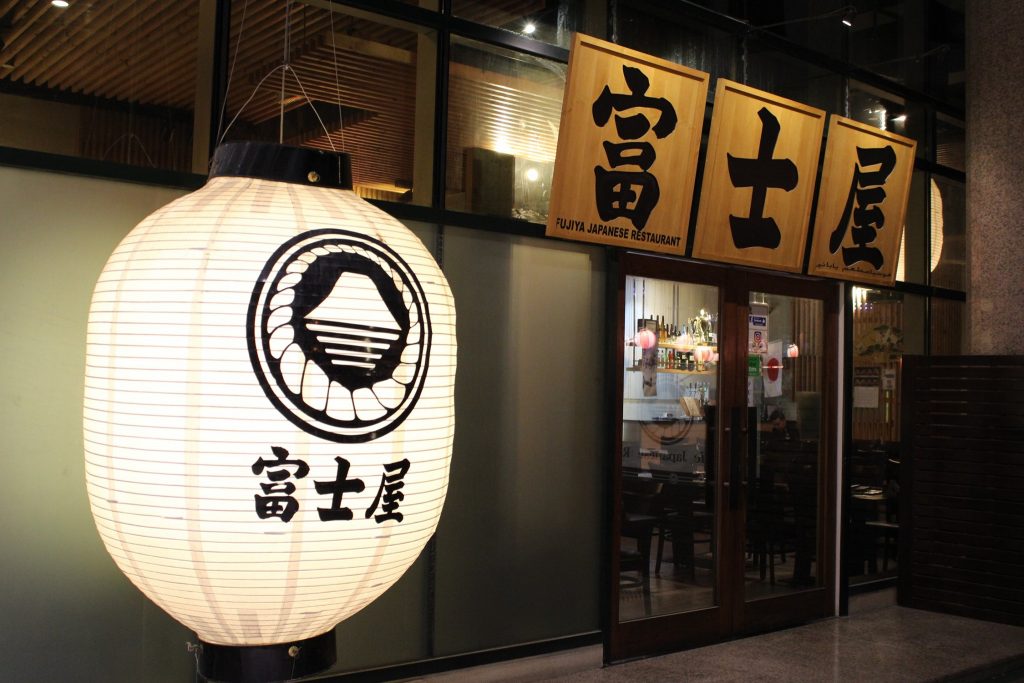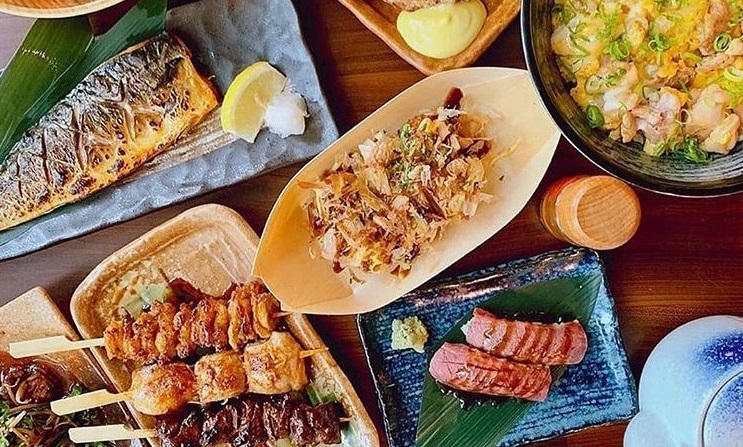



Hala Tashkandi
Ever wondered what happens to sumo wrestlers when they leave the ring for the last time?
Some go on to become comedians, singers or entertainers, while others invest their money and become businessmen. But a lot end up finding success in the culinary world as chefs and restaurant owners.
Akio Hayakawa is one of these. After a broken cervical spine forced him to abandon the sport of sumo, he decided to open a restaurant to share his passion for Japanese food. But instead of staying in his native Japan, Hayakawa ended up in a very different part of the world — the UAE.
Fujiya opened in Dubai in November 2018, with Hayakawa acting as its director, and the restaurant has enjoyed considerable success since then.
“We used to have a restaurant in Tokyo, but I always wanted to go overseas,” he said. “We went to Southeast Asia first, but we found too many Japanese restaurants there already. It took five or six years, but after a lot of thought, and visiting other countries in Asia, finally we decided to come to Dubai.”
After realizing that most of Dubai’s Japanese restaurants featured fusion food, Hayakawa and his partners decided to open a restaurant that would offer Japanese food in its purest form. Fujiya is popular not only with Dubai’s Japanese residents, but also with the locals.
“The number of foreign customers we get has doubled since we opened,” he told Arab News.
[caption id="attachment_986" align="alignnone" width="243"] “Aside from plans to open a second branch in Dubai, we would love to open a
“Aside from plans to open a second branch in Dubai, we would love to open a
Hayakawa sources everything he possibly can directly from Japan. However, he understands that he has to make concessions occasionally, though never at the cost of quality.
“We wanted to bring more authentic Japanese food to Dubai, but we have to adjust sometimes. Like the soy sauce we use in Japan, for example, which contains a little bit of alcohol. So we have to search for suitable alternatives,” he said.
The restaurant uses only halal meat, which is locally sourced. “It tastes a little different,” said Hayakawa, “but not in a bad way.”
Hayakawa even found a local supplier for wagyu beef, known worldwide for its superior flavor, meaning that he makes the famed Japanese beef accessible to everyone.
Fujiya is modeled on traditional Japanese izakaya, the bar-type restaurants that serve finger foods, small plates, and other types of snacks. However, it also offers meals in larger portions, and you can find ramen, rice bowls, and more filling options on their menu.
Most restaurants in Japan focus heavily on one type of food, such as ramen, sushi or yakitori, and work obsessively to perfect a single item. Fujiya’s goal was to create a casual eatery, with more menu items, but all high quality.
Classic favorites such as yakitori (grilled meat skewers) and fried chicken karaage are the most popular items, but Fujiya also offers ramen, shabu-shabu (hot pot), sushi and donburi (rice bowls) for those looking for a more filling option.
All the food is lovingly prepared in Fujiya’s kitchen, and both Japanese people and foreigners can’t get enough.
The restaurant is also popular with Japanese delegates, politicians and embassy staff.
More notably, Fujiya hosts the largest paper lantern in the UAE in the middle of its dining room — a huge, glowing white welcome to any who come to visit the restaurant.
Inspired by Fujiya’s success in the UAE, management is thinking of taking the restaurant to Saudi Arabia soon.
“Aside from plans to open a second branch in Dubai, we would love to open a restaurant in Saudi Arabia as well,” Hayakawa told Arab News.